With stablecoins gaining traction and regulation improving, African merchants may be nearing a crypto tipping point. Here’s why 2026 could mark a shift from hesitation to adoption.
Urban Empire (PC) review: be the master and destroyer of worlds
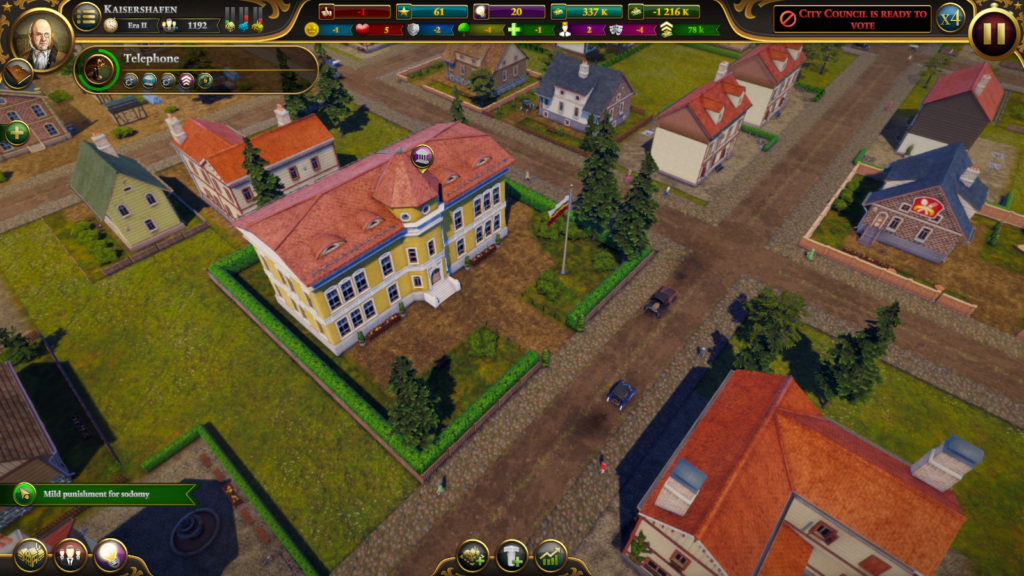
Urban Empire combines various elements of the citybuilder and political sim genres to create something the Finnish developer Reborn Games calls a “City Ruler”. This is a fascinating approach but one that produces a very complex and demanding gameplay experience as you are essentially playing two games at once.
This also adds a healthy dose of unpredictability, something I’ve always appreciated in games. One moment your city will be flourishing and the next you will struggle to get it out of debt while simultaneously battling to win the election. Urban Empire can be a frustrating and unforgiving title, but for that same reason it makes your accomplishments all the more rewarding.
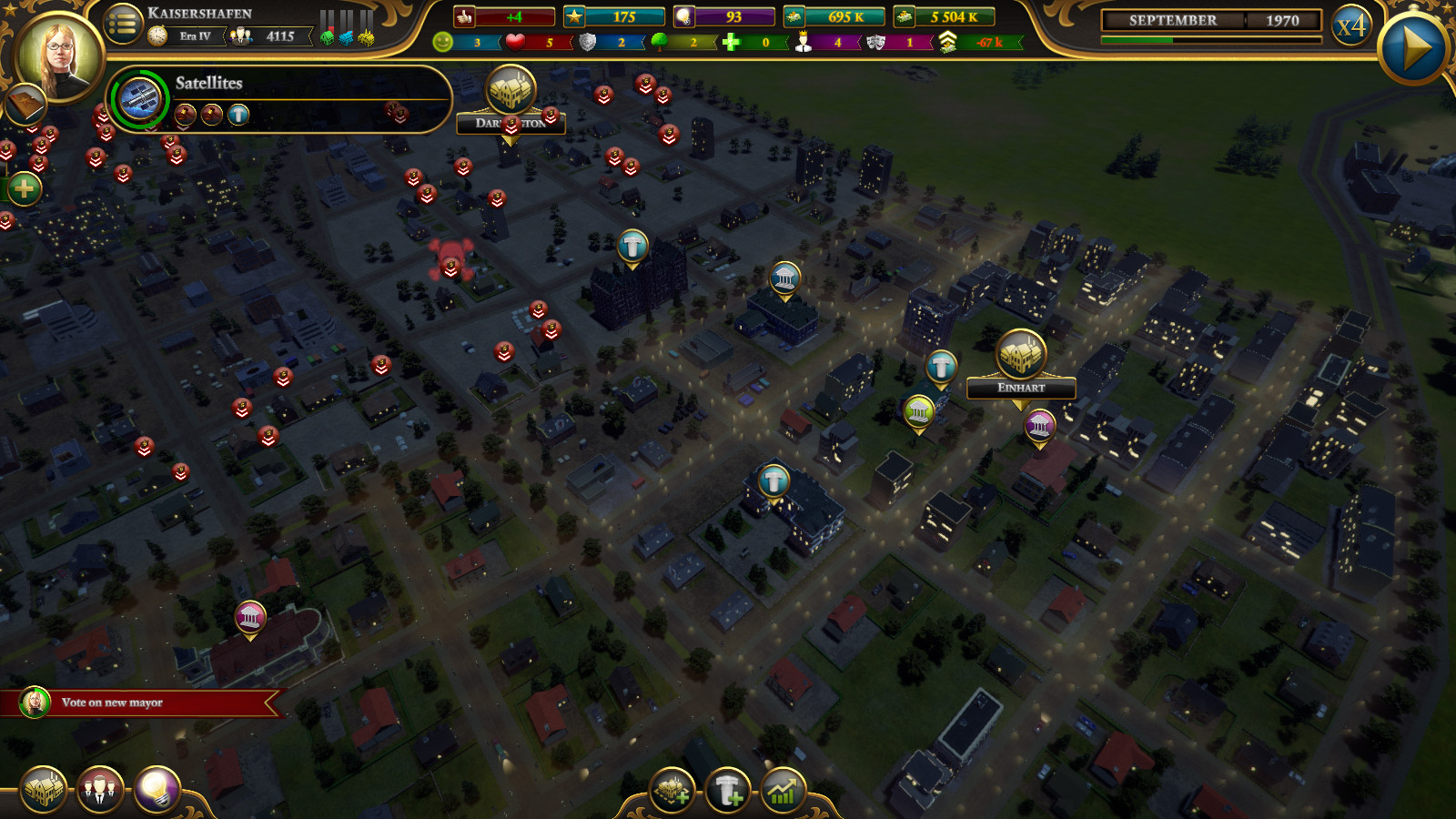
The game’s atmosphere boasts a captivating blend of both quirkiness and intensity, with humorous and light narration weaving in between powerful and imposing musical scores. The art is also stunningly beautiful and compliments the spirit of the game remarkably well. Whatever my or your opinion of this game might be, it is undeniable that the developers have put a lot of passion and effort into creating it.
The Rundown
Urban Empire’s campaign takes place in the fictional Central European country of Swarelia where you take control of a “mayoral dynasty” across five distinct eras, stretching from 1820 to 2020. As mayor, your objective is to build and grow your town into a prosperous city while navigating very tricky political, economic and sociological waters.
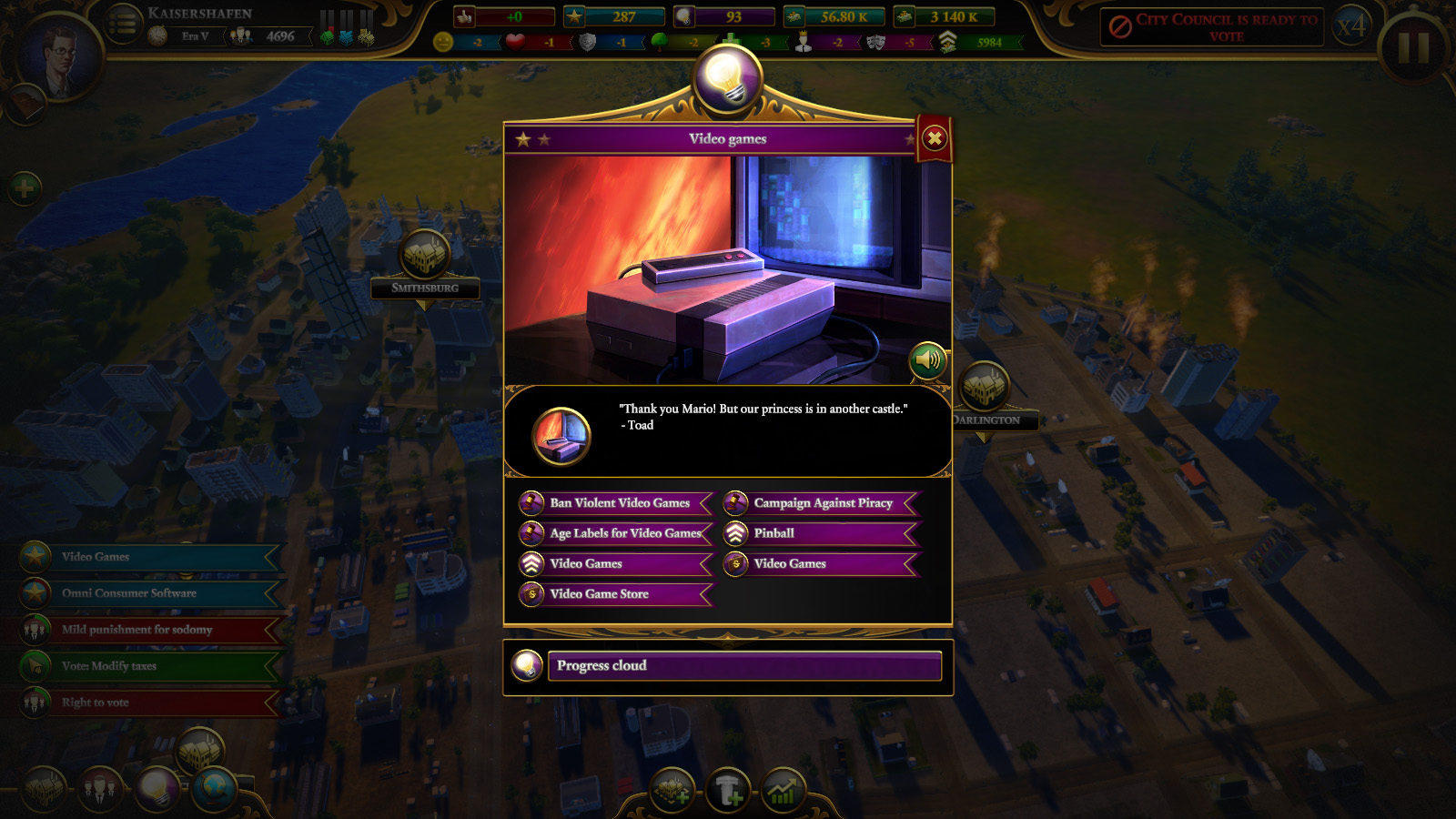
There are four family dynasties to choose from, each with its own inclinations and aspirations. In each era you will play with the offspring of the previous mayor, carrying on their legacy and dream of a perfect utopia. Each of these members will also boast certain traits such as “honest” or “gullible”, which can have both positive and negative effects on you and your city.
Progress is slow in Urban Empire. At the start you will be taken through a short and not incredibly informative tutorial that will briefly explain the mechanics of the game. I enjoyed being left alone to discover the gameplay for myself as I absolutely detest tutorials. But this also meant that I went through a steep learning curve and it took some time for me to really get the hang of things.
Although the mechanics did feel intuitive after spending some time with them, I did feel that the game didn’t provide enough feedback for me to make informative decisions. Most of the time I was playing a guessing game and I wasn’t always completely sure how my actions affected my city. To be honest, this uncertainty was present until the very end of the game.
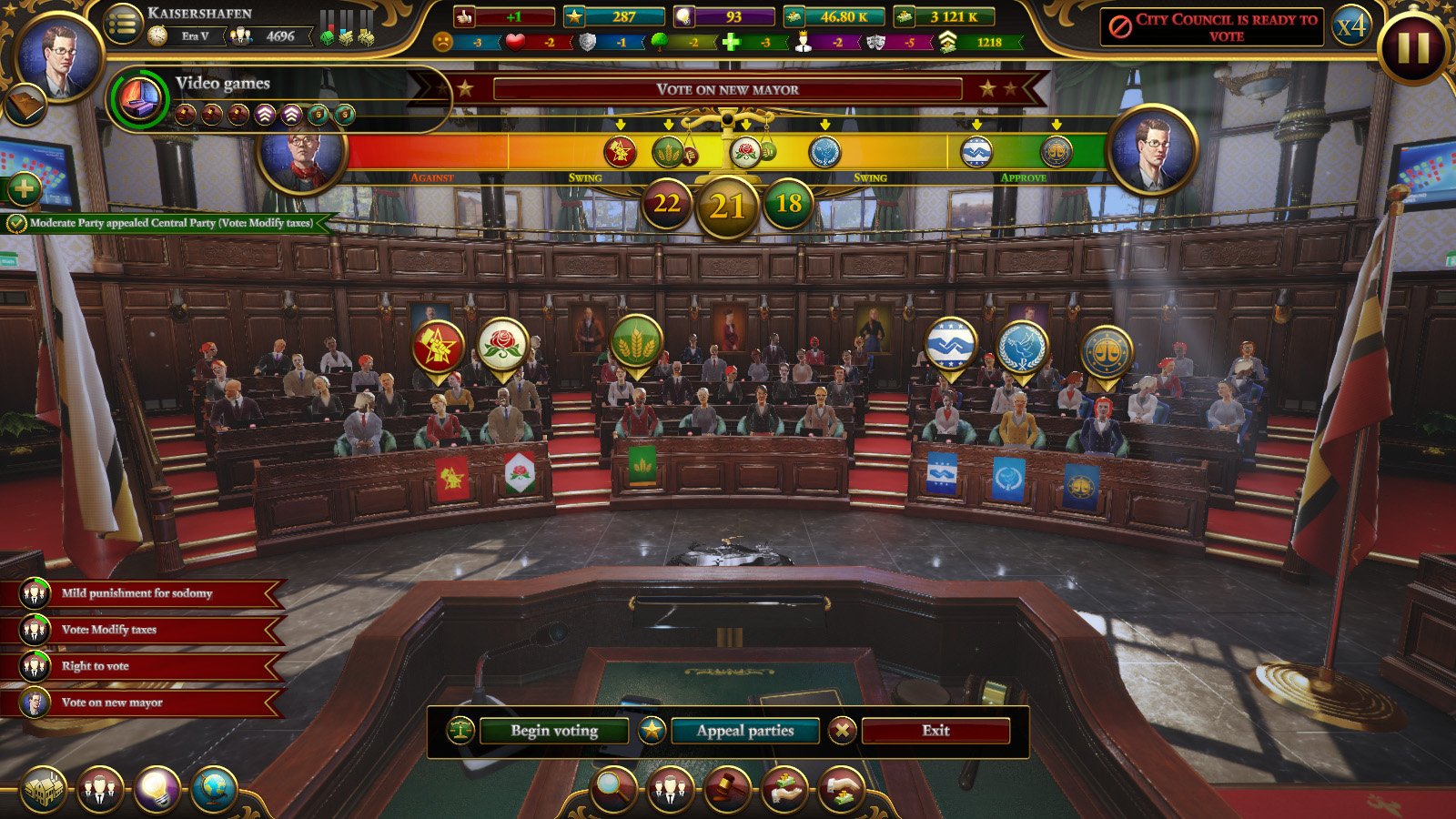
In Urban Empire you will be building your city district by district. Each district will consist of three different areas, namely the residential, commercial and industrial (RCI) areas. When building a district you will have to keep an eye on your RCI demand and ensure that the balance is upheld. Too many residential areas will mean high unemployment while too many commercial areas cause businesses to go bankrupt.
Once you have established your first few districts you will have to start managing a plethora of elements. Firstly will be your city’s budget and your personal funds. Without finances, your city won’t see much progress.
There are a few ways to earn money for your city. The greater part of your income will come from business and citizens tax. This will have to be carefully managed though as every change you make can have a rippling effect on your economy. For instance, if you raise your business tax too high your city’s companies will start going bankrupt, and you won’t be able to earn any tax from them.
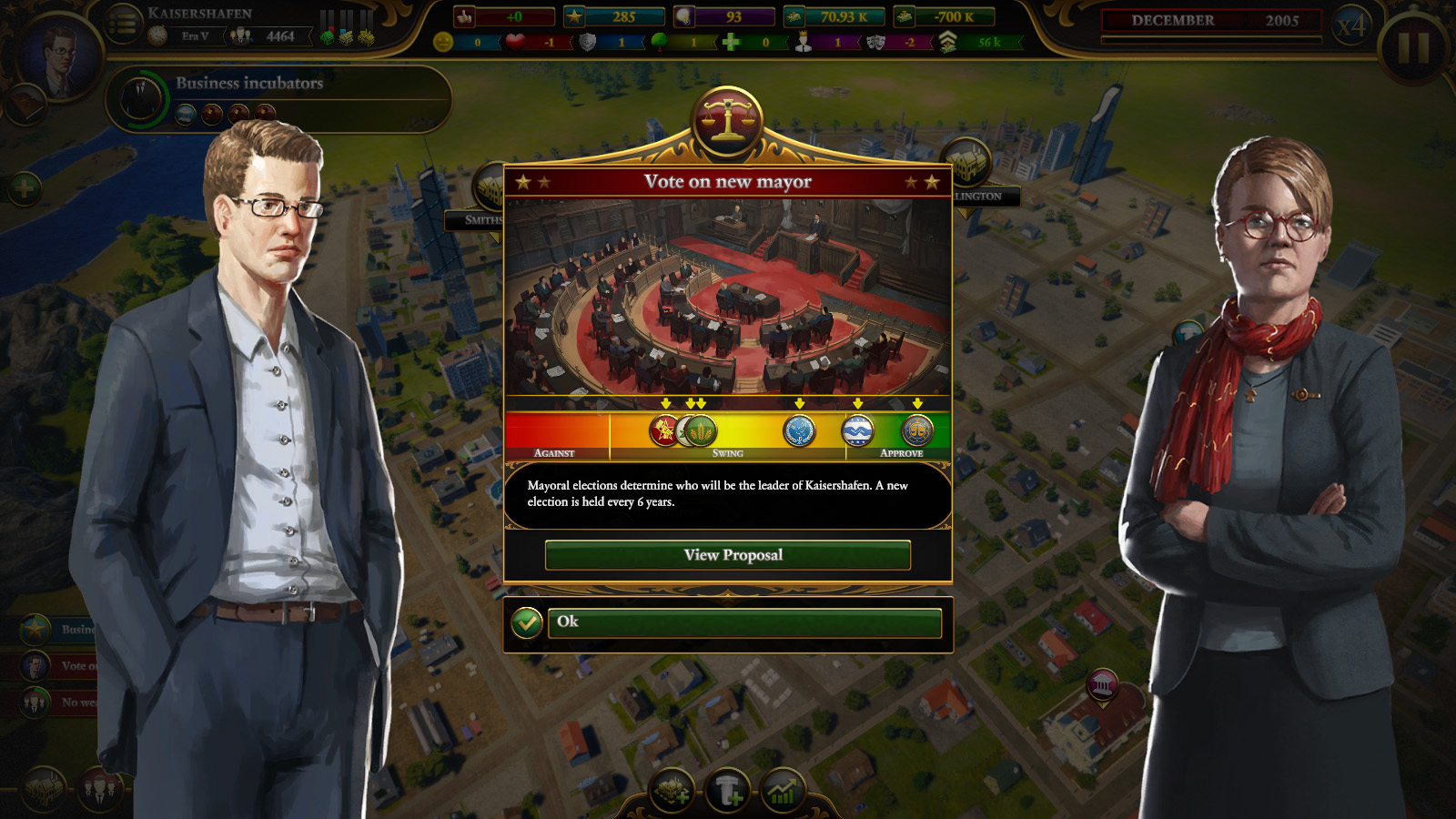
Another way to generate income is putting edicts into effect, which are basically official regulations and limitations imposed on your city. As one example, you can install an edict that requires all businesses selling alcohol to apply for a licence. Of course, this licence won’t be for free.
The next thing you will need to keep tabs on is your “Wheel of Life”, portrayed by the bar at the top of your screen. The Wheel of Life represents the wants, needs and happiness of your city’s inhabitants. These wants and needs are divided into six different categories: social life, security, environment, health, personal growth and fun. Keeping a citizen happy is important as it provides bonuses, such as a happy worker causing a company to perform better.
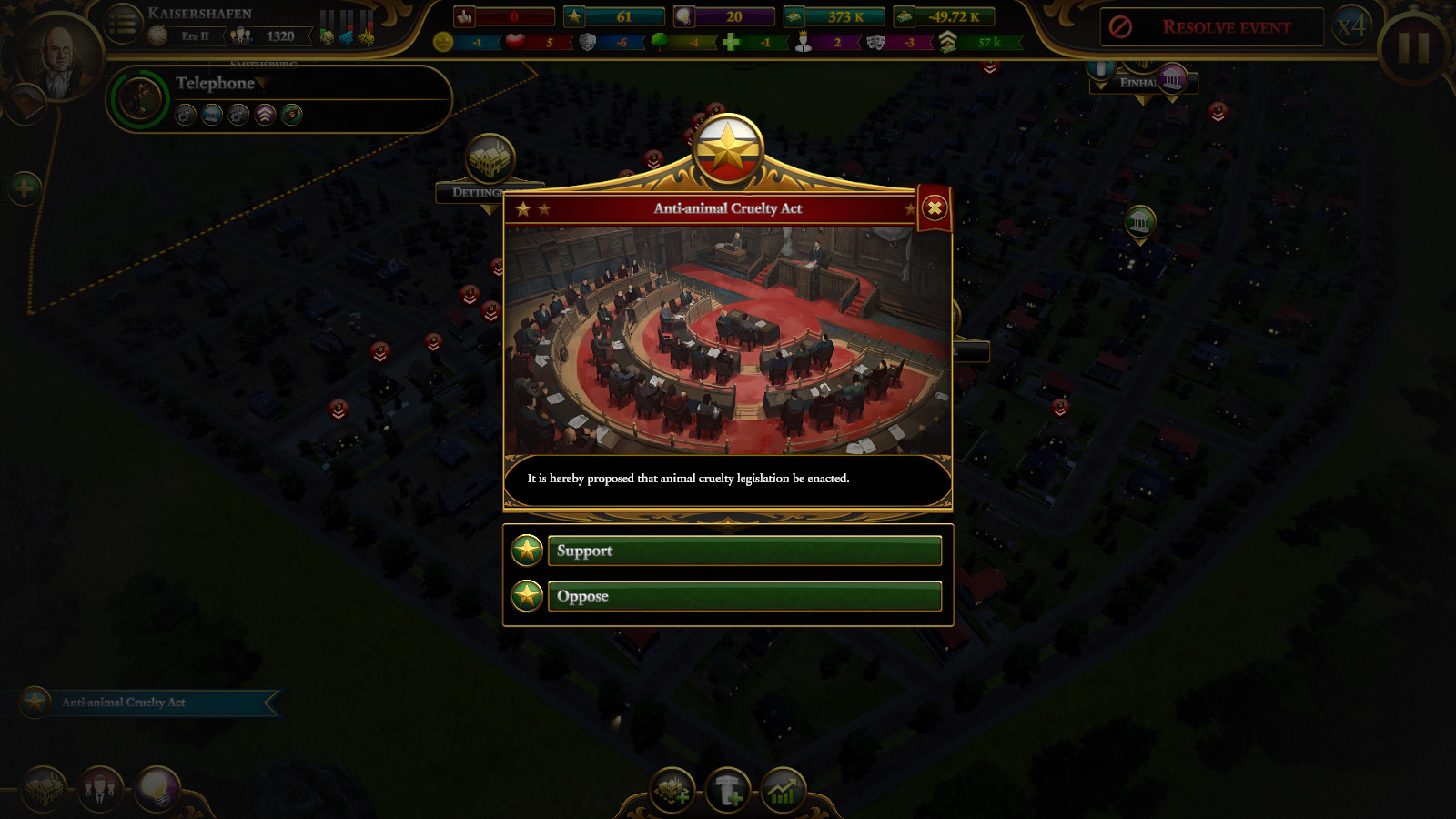
To address each of these categories you will need to focus on developing the infrastructure and technology of your city. Each era will present you with various technological advancements you can research in the “Progress Cloud”, such as the telegraph machine in Era I and the Internet in Era V.
These advancements will enable you to add infrastructures like electricity or telephone lines to your city. They will also unlock various “institutions”, like a university or railroad station, that will add a bonus to your whole city.
But not everything is under your control in Urban Empire. The story of your town loosely runs parallel to history’s timeline, meaning you will encounter various historical events such as World War I and II and the Great Depression. These events mostly act as a narrative element to add realism to the story, but will also add certain variables to gameplay such as your businesses going bankrupt during the Depression.
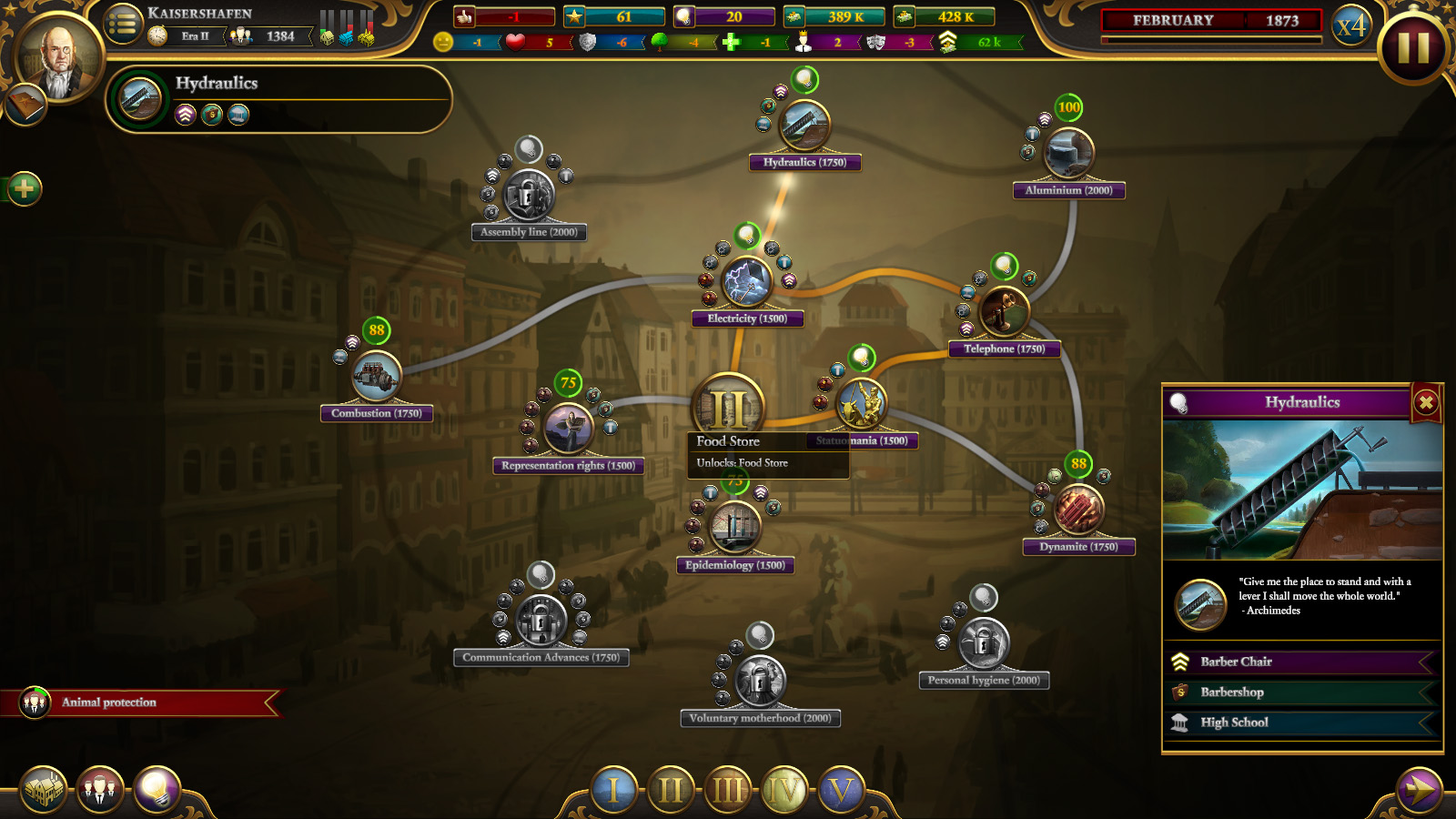
Beyond these hurdles though, lies your greatest obstacle… the council.
Playing the political game
The council is made up from members of various political parties, most of whose views are worlds apart. Before making any decisions or placing even a single building, they will have to review your proposal and put it to a vote.
The voting process is represented by a sort of scale that shows if the vote is leaning towards approval or rejection. Each party can be seen on this scale and it’s up to you to convince them to see things your way.
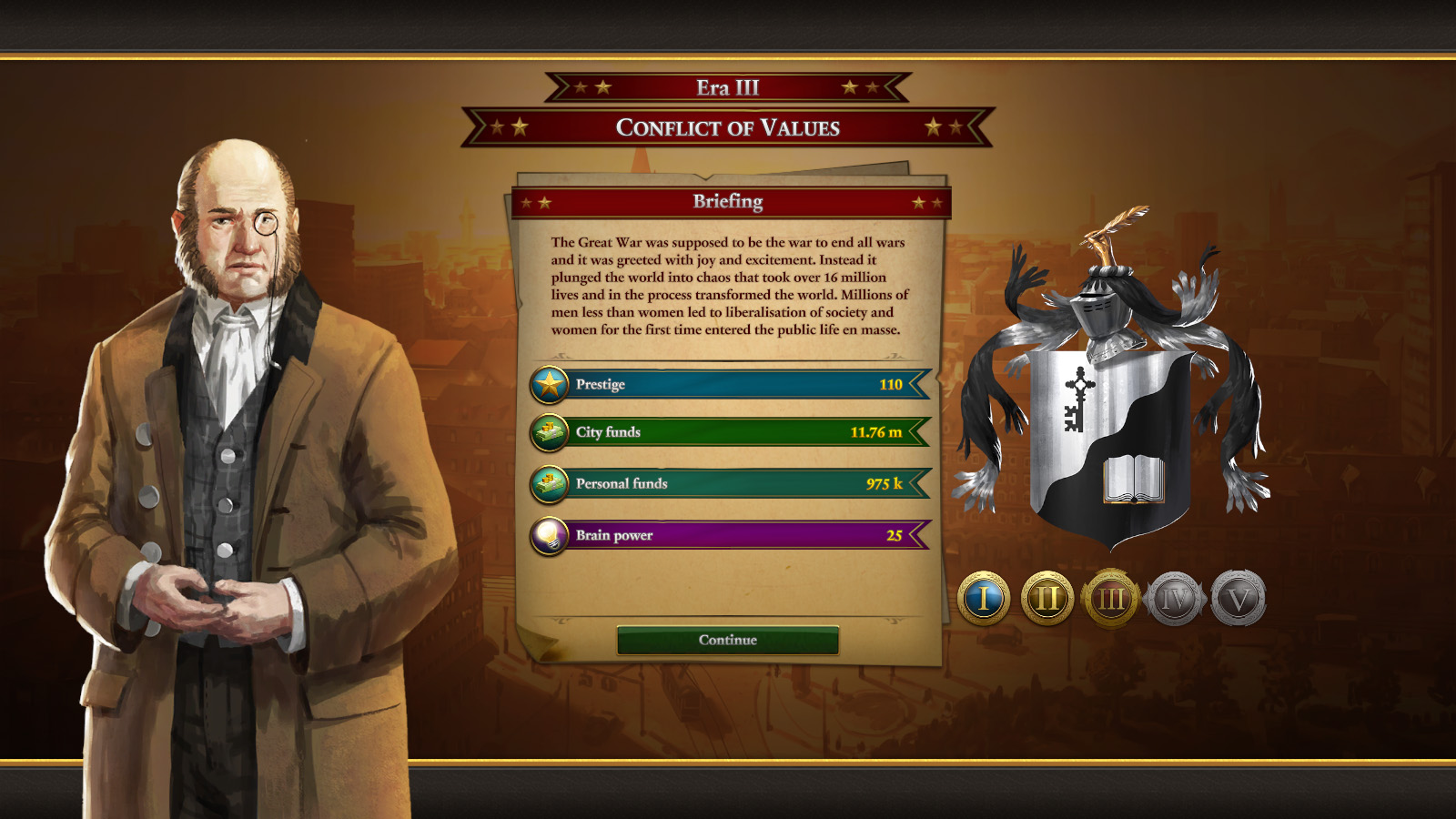
Before voting begins, there will be a period of a few months where they will debate the issue at hand. During this time you are able to “appeal” to each of the parties and try to influence their verdict. To sway the minds of the council though, you will have to play a very cautious game of politics.
One thing you’ll need to take into account when appealing is your “political goodwill”, a number which represents your standing with a party and how easily you will be able to influence them. These political goodwill points are earned by taking actions that the specific party approves of or vice versa.
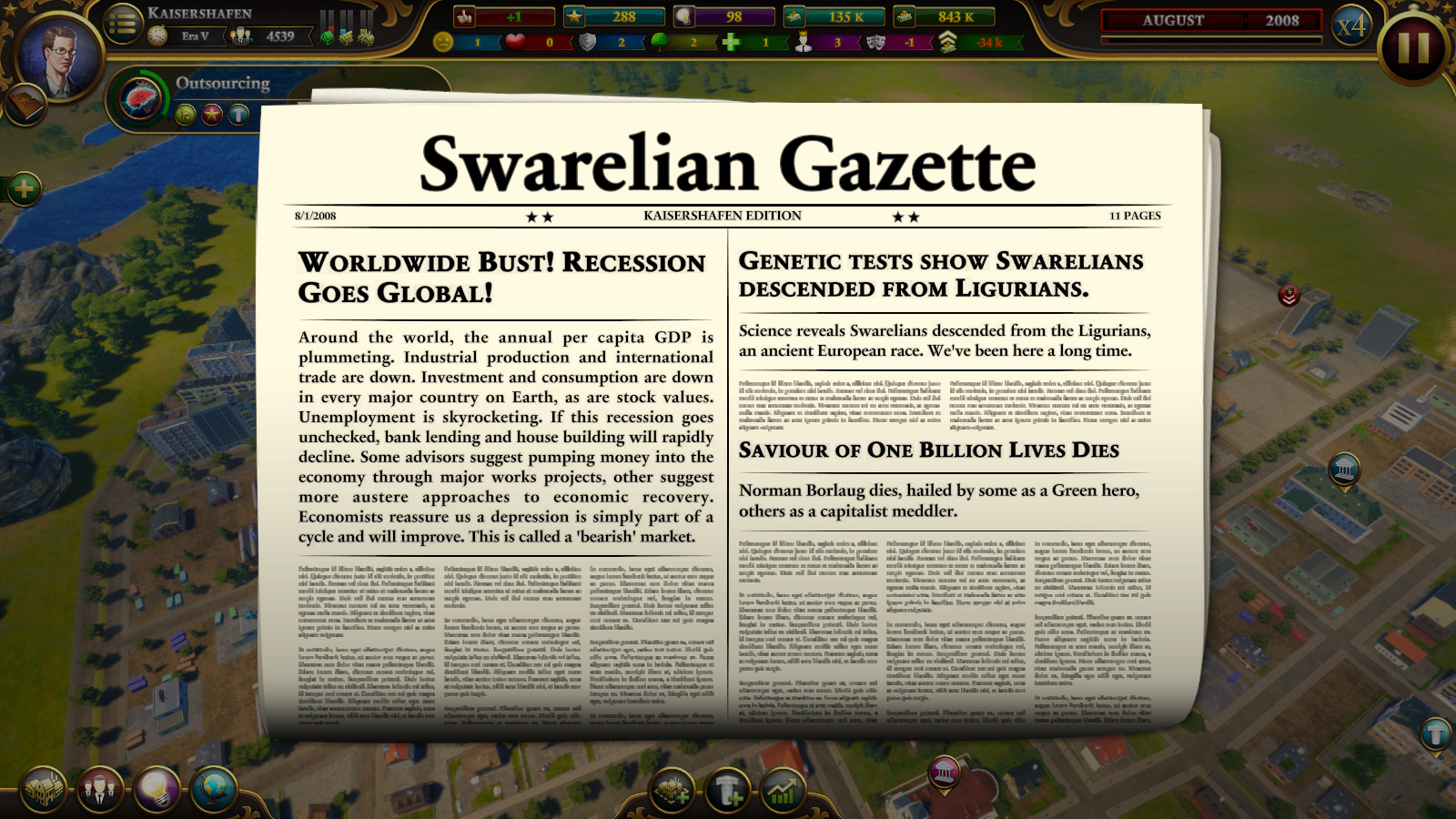
You can appeal to a party by pleading, demanding or threatening them to take your stance. Pleading is usually the safest and most effective bet but you will need to spend your limited political goodwill to take these actions. When you’re not on good terms with a party, you can either demand or threaten them. This is a much more risky route to take though as it can backfire and cause more of the parties members to vote against the proposal.
But there will be times when no matter what speech, threat or demand you make, a party will utterly refuse to support you. Fortunately, there are other ways to deal with the more stubborn members of the council.
Firstly, there is your reputation that is represented by “prestige” points. By using your prestige, you are able to overrule a decision, speed up the voting process and bypass the council. Prestige points are quite rare though, especially in early gameplay, and can also cause parties to dislike you as you are undermining their position. Use them wisely.
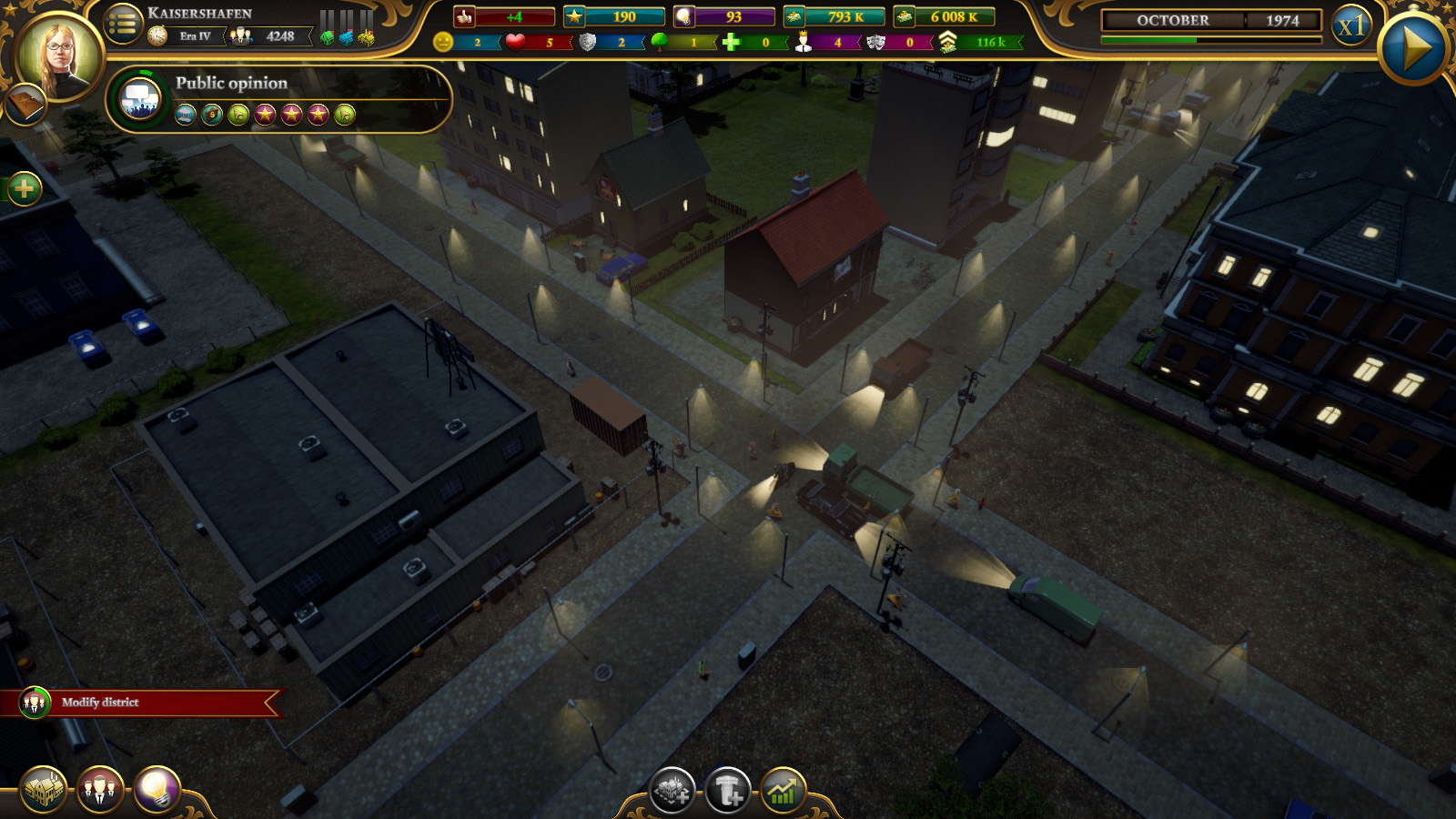
But when all other avenues have failed, you can take the more unsavoury route and blackmail a party to support you. This is by far the most effective (and entertaining) way of influencing a decision and can sometimes swing a seemingly lost cause in your favour. Use it sparingly though, as blackmailing will have a drastic effect on your standing with a party.
Information used to blackmail is acquired as an in-game event where you or a colleague will overhear a rumour or spot a council member in a precarious position. Later in the game, after you’ve researched “photography” skill, you will also be able to assign a photographer to collect “dirt” on a specific party, but it also comes with a hefty price tag.
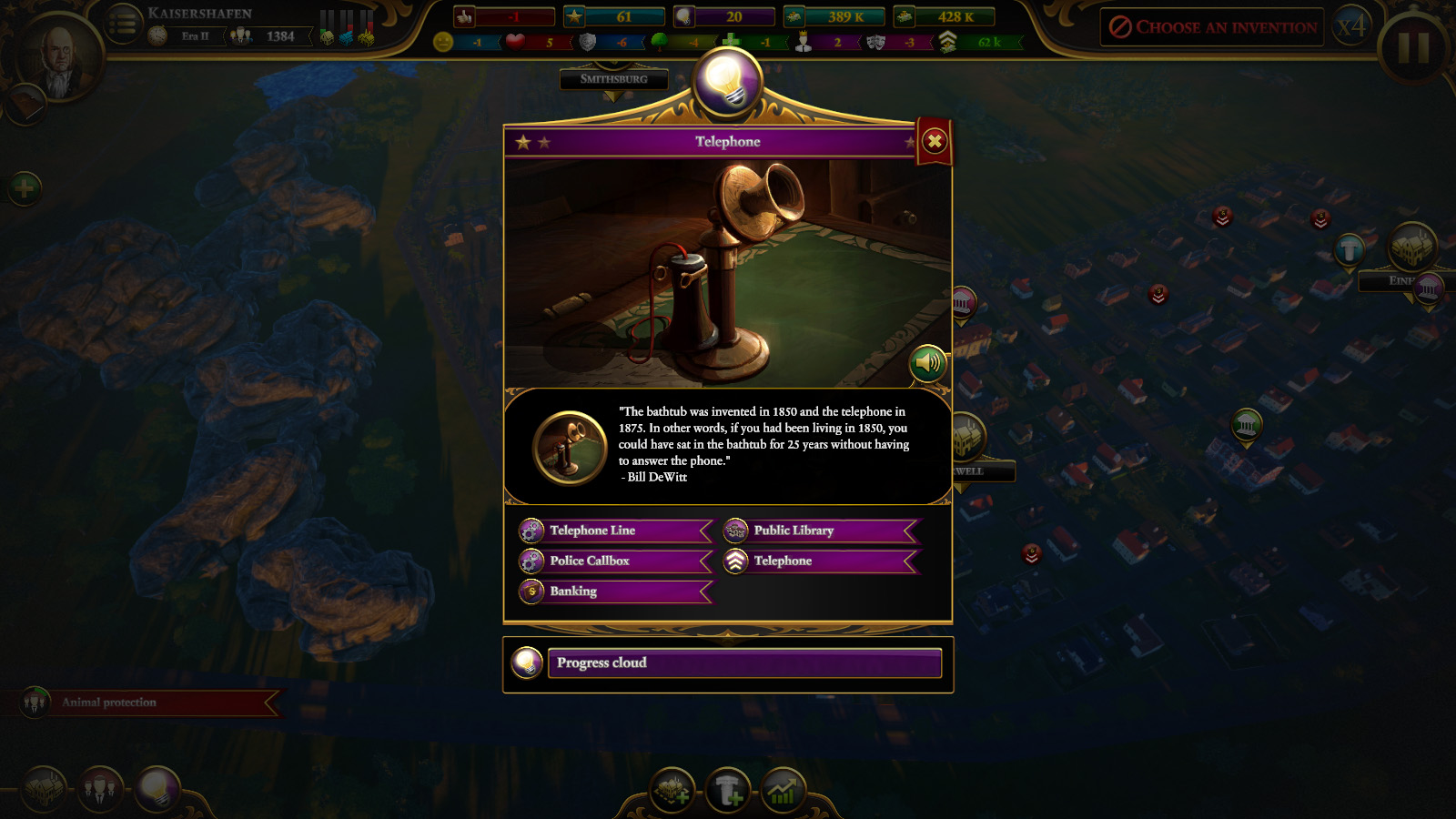
Game Information:
Release Date: 20 January 2017
Developer: Reborn Games
Publisher: Kalypso Media Digital
Genre: City Ruler
Platform(s): PC
Price: R409
Verdict: Urban Empire was a gruelling yet fascinating experience and one that I believe will delight fans of either the political or city builder genres. It’s unpredictably kept me one the edge of my seat. Every aspect of the game was somehow interconnected and a single, seemingly insignificant action could have massive effects on multiple fronts. My accomplishments filled me with a sense of triumph while my failures left me feeling utterly defeated. The game is not without its faults — no game is — but it clear that a lot of passion went into its creation. Its gameplay is requires meticulous and calculative attention, so it might not appeal to the impatient gamer. But if you are a fan demanding and multifaceted management games, Urban Empire will certainly keep you busy for hours.
Score: 7/10


